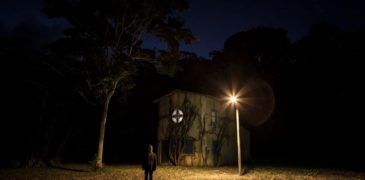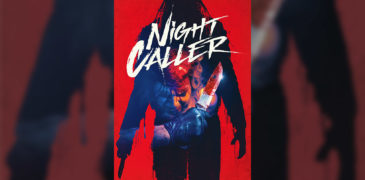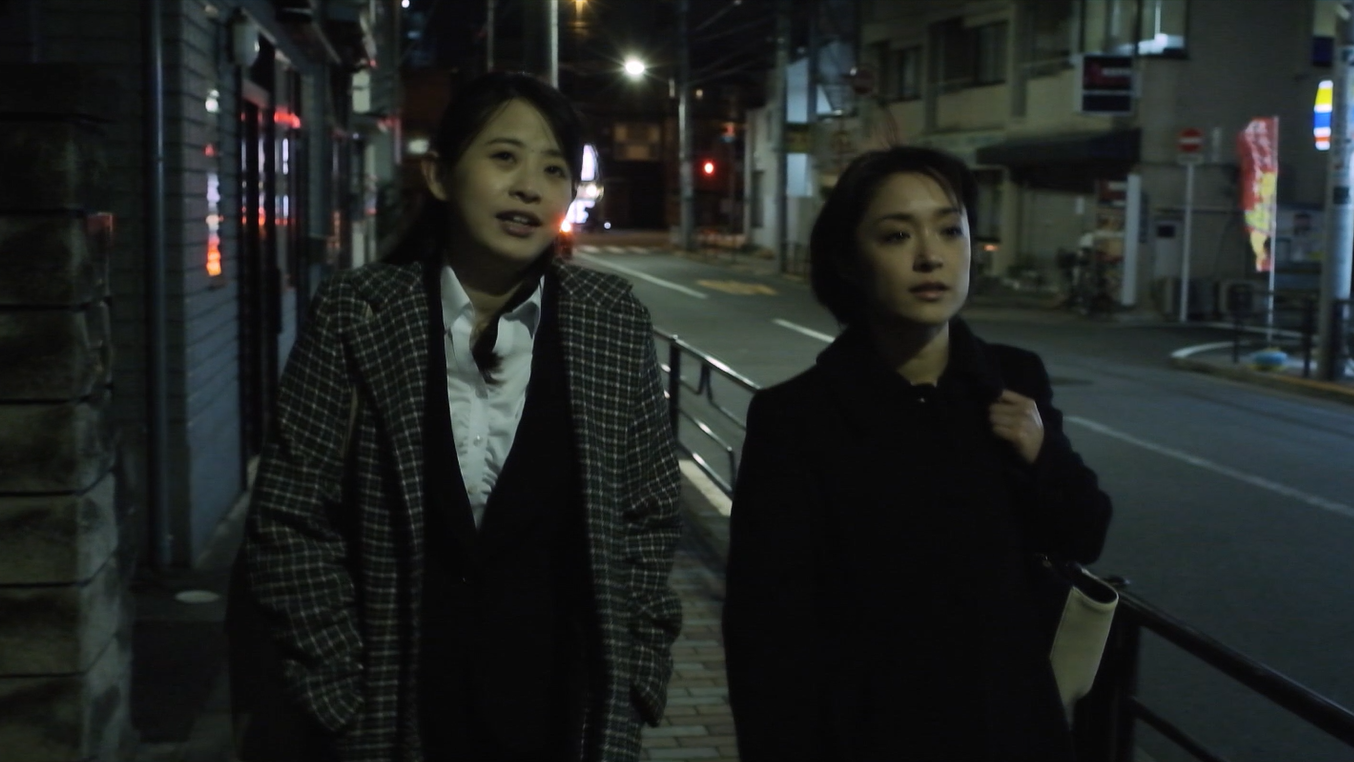
After a hard day of work, 36-year-old Yuko Sawamatsu returns to her apartment for an evening to unwind. However, her memories of a recent affair with a married man keep coming back to her in the form of flashbacks. Although these memories are painful, Yuko is resolved in her choice to have ended the relationship. But when her ex shows up at her door demanding to be let in and then proceeds to try to have sex with her, things turn violent.
The premise of One Day, A Woman is simple with both the set-up and the execution feeling rather familiar. The film also seems to have been made during Covid, as its majority taking place in a single location speaks to these restrictions. However, director Tetsuya Mitsuhira manages to use the forced limitations and simple narrative to craft a deeply tragic portrayal of the decline of a young woman into a killer, and ultimately a martyr for violence against women.
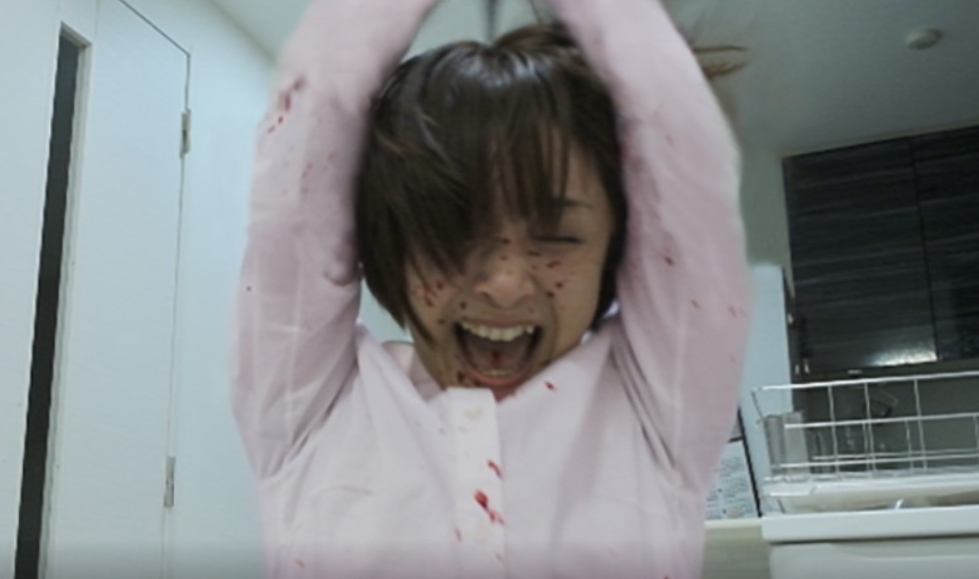
To set up the premise of the film, Mitsuhira relies on a single conversation with a co-worker to establish Yuko’s simplistic living as well as a flashback to introduce us to her past partner and the scars the relationship left. Essentially, we are presented with a woman at a crossroads in her life, with our only indication of who she is coming from these instances and house decorations, including a knocked-down portrait of her previous partner and a prominently displayed crucifix. This results in a character with limited depth, but one that is easy to familiarize with as the major issues in her life are summarized and poised to frame the tragedy to come.
*Spoilers Ahead*
After the return and subsequent murder of her ex-partner in an act of defense, the commotion brings both neighbors and police to her door, disrupting the shock Yuko feels and thrusting her into the terror of being caught, and perhaps more importantly not having her side heard. This moment marks a hard shift from the relaxed pace of the opening and creates a sense of immediacy as Yuko tries to hide the body while rationalizing her actions. An audience with an understanding of the circumstances will want to wish for her to be able to work her way out of the situation, but the point of no return is obvious and the same audience will be aware of how one-sided the account would come across–the rapid mental decline makes sense given the set-up and execution of this act of violence.
The breakdown leads to a visually rich conclusion as Yuko exits her apartment and sees key moments of her life flash before her; an ill mother wishing her to have children as well as a giant crucifix on the street which she staggers towards while begging for forgiveness. These closing moments are a lot to take in both visually and emotionally, existing in a flood of emotions and regrets that is impeccably conveyed by the actor playing Yuko. Backed by a strong lead performer, Mitsuhira is able to make a strong impact under restrictions of both budget and space–the ending hits hard and it is truly heart-wrenching to see Yuko collapse under her actions, beliefs, and past all in one fell swoop.
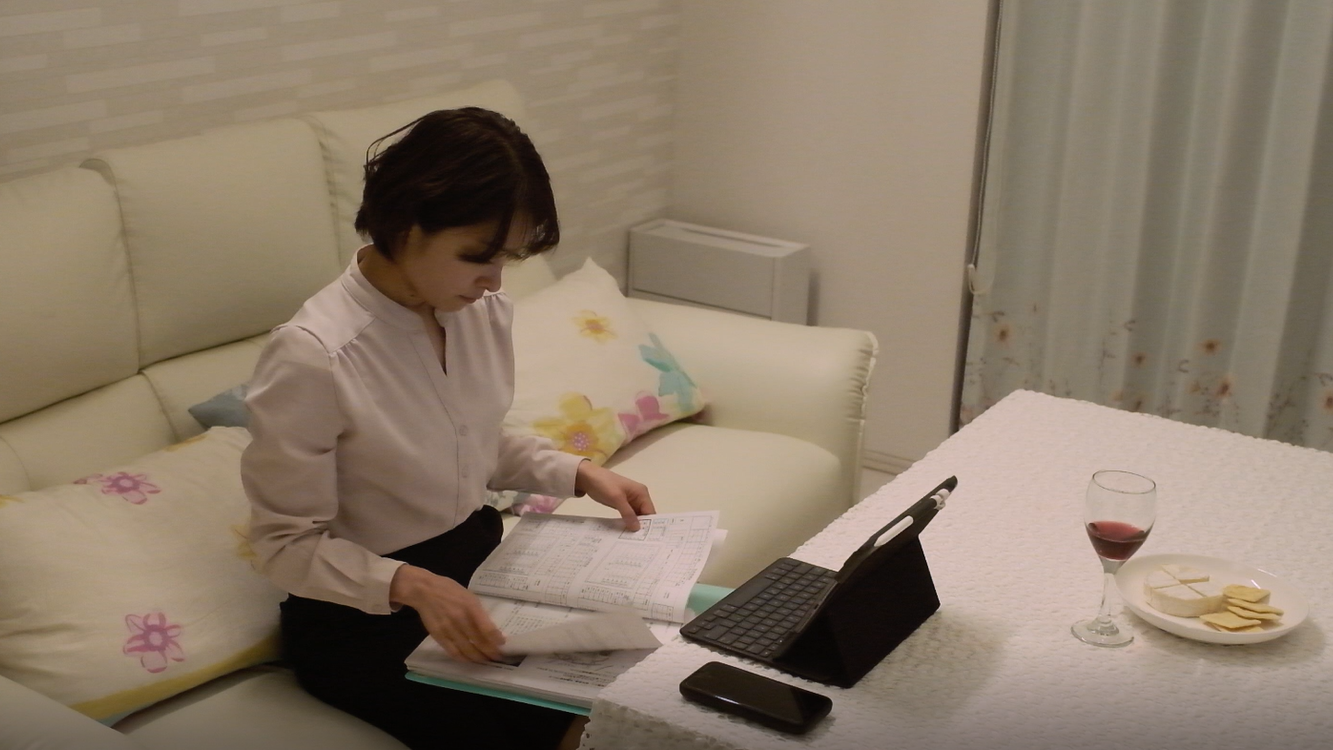
*Spoilers End*
One Day, A Woman is an exercise in working with a minimalist approach to tell a larger story. In this regard, the hour-long film is a complete success, particularly in offering up a strong emotional conclusion that is certain to resonate with audiences. However, the budgetary and location restrictions will ensure this film stays in the underground; there is a degree of wasted potential in an underfunded production. Arguably, a score could have helped boost the visceral reactions to violence or reflections of love lost and more defined visuals could have given the production some needed flair. None of this would have been essential, but it could have easily turned the production into a more substantial release with potential to reach a wider audience.
Regardless, director Tetsuya Mitsuhira impresses in this low-budget thriller/drama and gives the audience one of the best endings to come out of the world of micro-budgeted underground Japanese cinema. I would love to have a chance to see Mitsuhira’s previous work and will certainly be keeping an eye out going forward for any projects. A masterclass at making a profound statement in under an hour with budgetary restrictions, make sure you check out One Day, A Woman given the chance!
We Watched One Day, A Woman as Part of the 2022 Japan Film Fest Hamburg (JFFH) Line-up


Past Festival Coverage
Leo Falcão’s feature film debut Subject (Sujeito Oculto) is a rare genre offering that transcends its format and offers a meditative study of the power of storytelling and life among mythical… There are movies that are sometimes too much even for the seasoned horror fan – for the 2012 version of myself, one such movie was the remake of William Lustig’s… “My name is Roxy, but the village girls call me toxic” After explaining how womankind found themselves alone in the land known as ‘After Blue’, we meet Roxy whose introduction… Deadware is a 2021 American-found footage horror, written and directed by Isaac Rodriguez. Mostly known for directing horror shorts such as We All Fall Down (2011) and Russian Doll (2019)…. Farley Wilder is the local peeping tom in a small New Hampshire town, where his reputation has earned him the interest of a writer, Scarlett, and together the two begin… Pussycake (Emesis) is a 2021 Argentinian sci-fi horror, written and directed by Pablo Parés, with additional writing from Maxi Ferzzola and Hernán Moyano. Pablo is no stranger in the directorial chair, having over thirty-six productions under his…Subject (2022) Movie Review – To Exist Is A Personal Verb
Night Caller (2021) Film Review – Meet the New Maniac
After Blue (Dirty Paradise) Film Review – An Erotic, Sci-fi, Coming of Age Tale
Deadware (2021) Film Review – Haunted Point and Click Adventure
Freaky Farley (2007) Film Review – The Perverted Hero We All Need
Pussycake (2021) Film Review – Curiosity Killed the Pussycake
